Advanced electromyography testing that pinpoints exactly what’s causing your symptoms, so you can finally move forward with the right treatment.
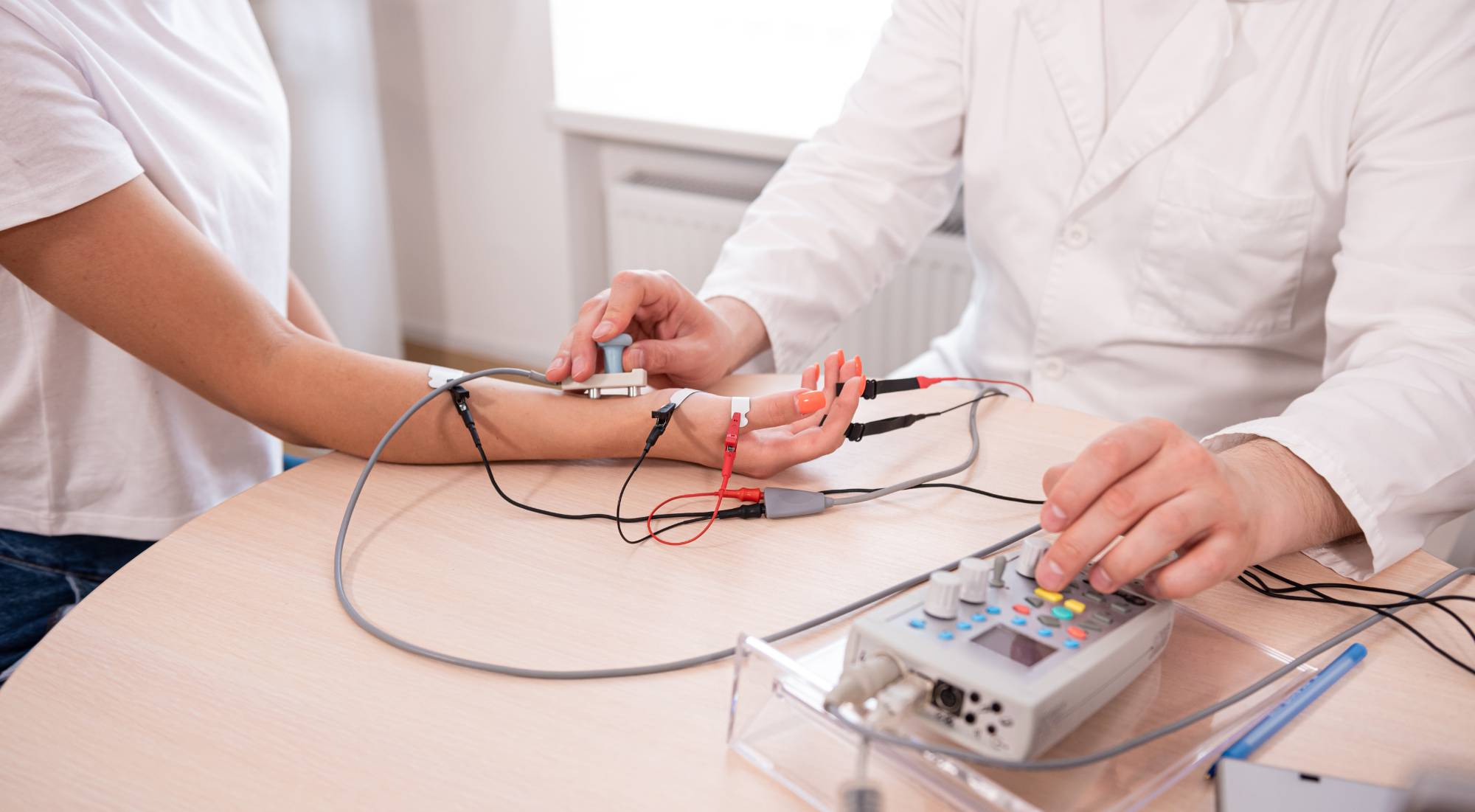
Reviews
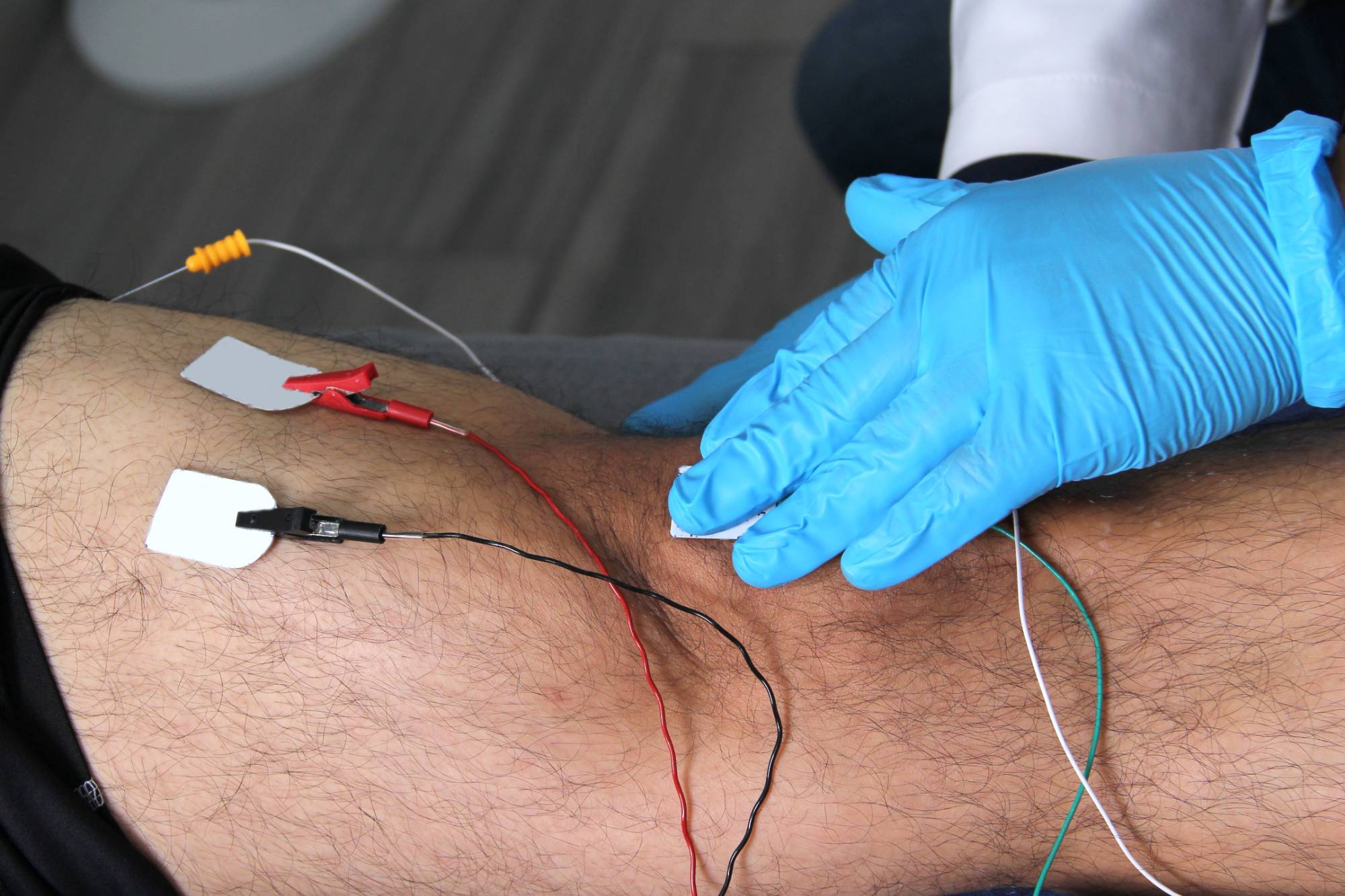
You’ve been dealing with nerve pain, muscle weakness, or tingling for too long without real answers. EMG testing changes that by measuring the electrical activity in your muscles and nerves to identify exactly where the problem is.
When you know what’s actually wrong, everything becomes clearer. Your treatment plan becomes focused instead of guesswork. Your symptoms make sense instead of being mysterious. You can make informed decisions about your health instead of wondering if you’re imagining things.
The test itself takes about 30-45 minutes, and you’ll have results the same day. No waiting weeks to find out what’s going on with your body. No more appointments where you leave with more questions than answers.
We’ve been helping South Florida residents get to the bottom of their nerve and muscle problems for years. Our team understands that by the time you’re getting an EMG test, you’ve probably been dealing with symptoms that are affecting your daily life.
We use advanced diagnostic equipment and take the time to explain what we’re finding in terms that make sense. You’re not just getting a test – you’re getting answers from specialists who know how to interpret what your nerves and muscles are telling us.
Located conveniently in Sunset, we accept most insurance plans and focus on getting you the information you need to move forward with effective treatment.
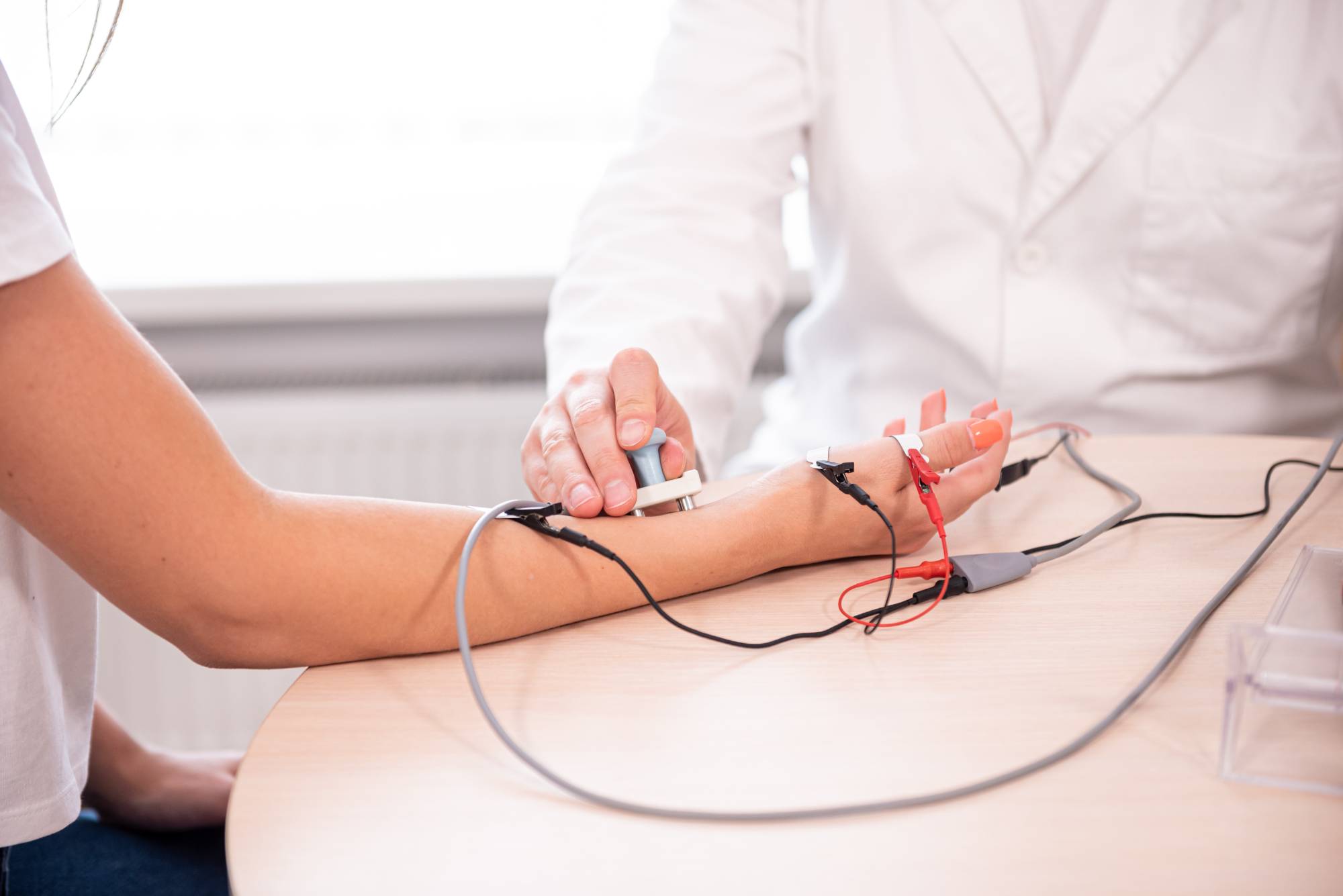
The EMG test has two parts that work together to give a complete picture of your nerve and muscle function. First is the nerve conduction study, where small electrodes are placed on your skin to measure how well electrical signals travel through your nerves.
The second part involves inserting a thin needle electrode into specific muscles to record their electrical activity. This sounds worse than it is – most patients describe it as similar to getting blood drawn. The needle picks up signals that show whether your muscles are responding normally to nerve impulses.
Throughout the test, we’ll tell you exactly what’s happening and what the findings mean. Our specialists interpret results in real-time, so you’re not left wondering what all those squiggly lines on the screen actually indicate. By the end of your appointment, you’ll understand what’s causing your symptoms and what the next steps should be.
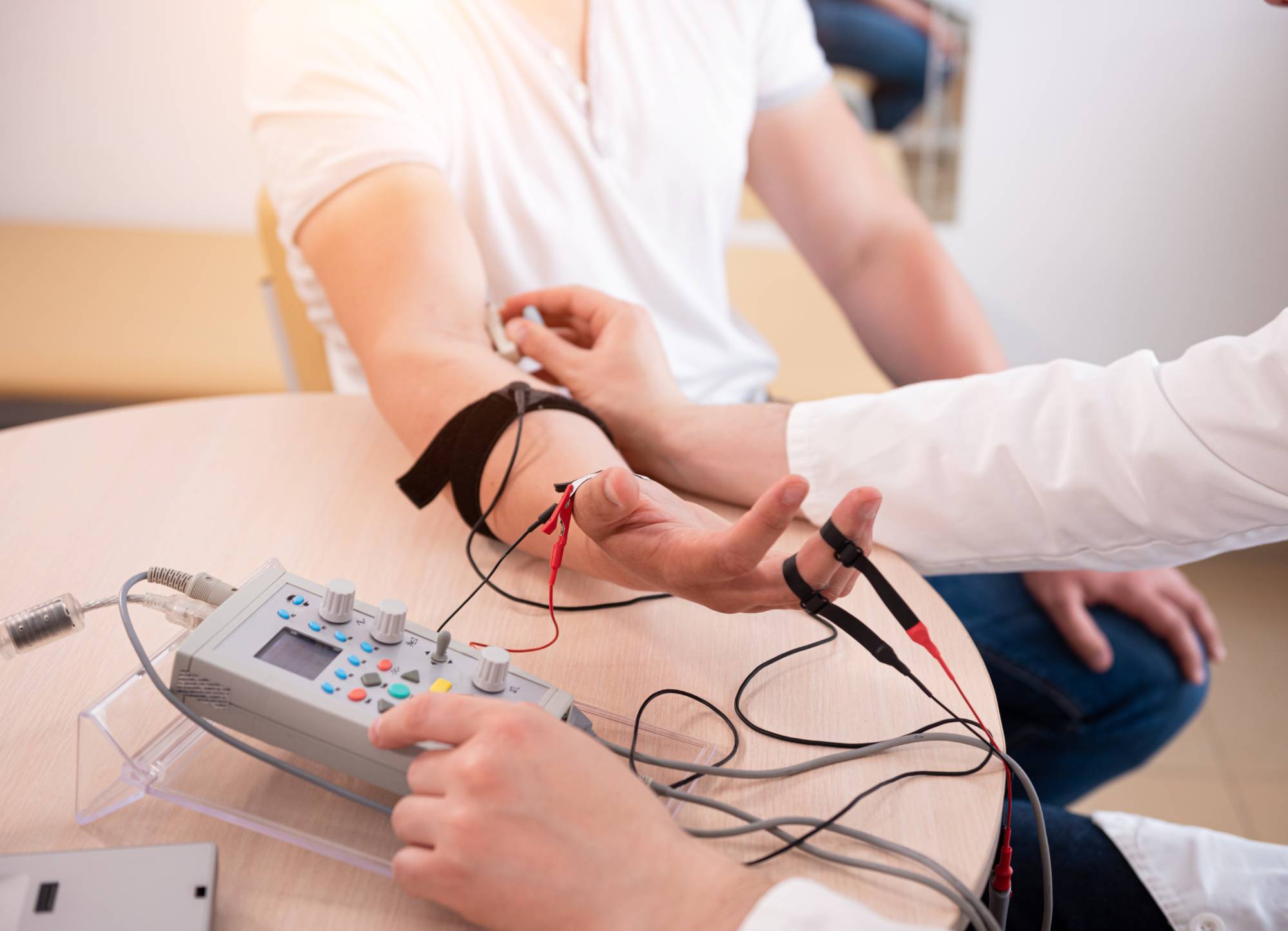
Ready to get started?
Your EMG testing includes both electromyography and nerve conduction studies performed by our experienced specialists. The comprehensive evaluation covers the specific areas where you’re experiencing symptoms, whether that’s your hands, arms, legs, or back.
The testing can diagnose conditions like carpal tunnel syndrome, pinched nerves, sciatica, diabetic neuropathy, muscle disorders, and other neurological problems that affect how your nerves and muscles work together. You’ll receive a detailed explanation of findings and recommendations for treatment.
Most insurance plans cover EMG testing when it’s medically necessary, and we handle authorization and billing directly. Same-day appointments are often available for urgent cases, and results are typically ready before you leave our office.
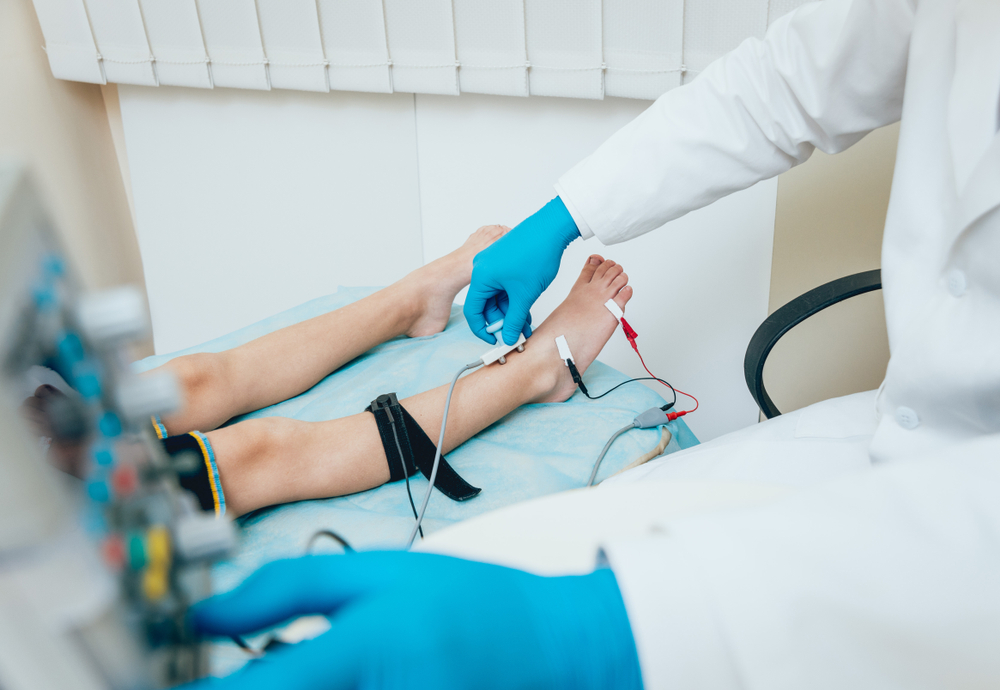
New York:
Florida:
Support